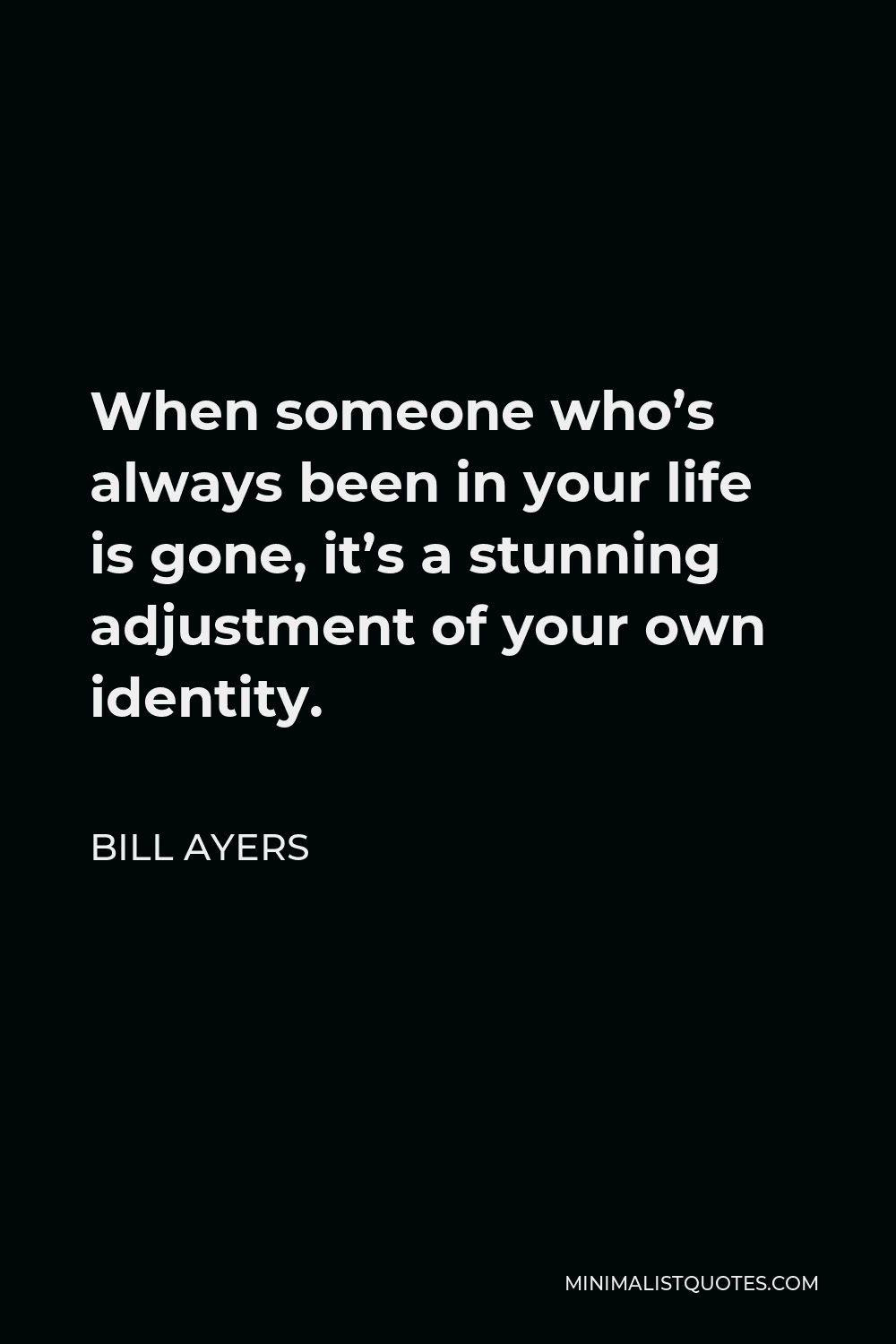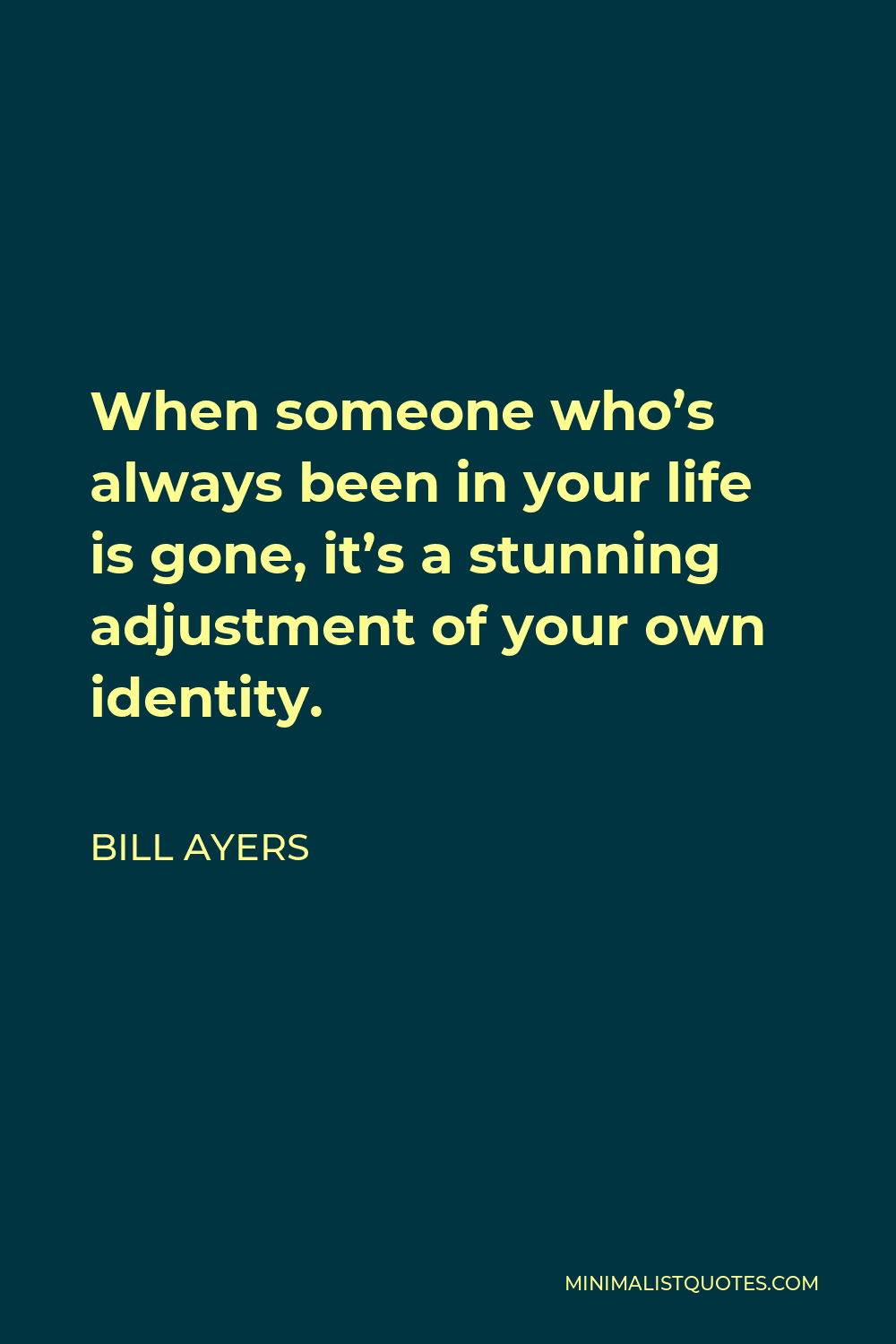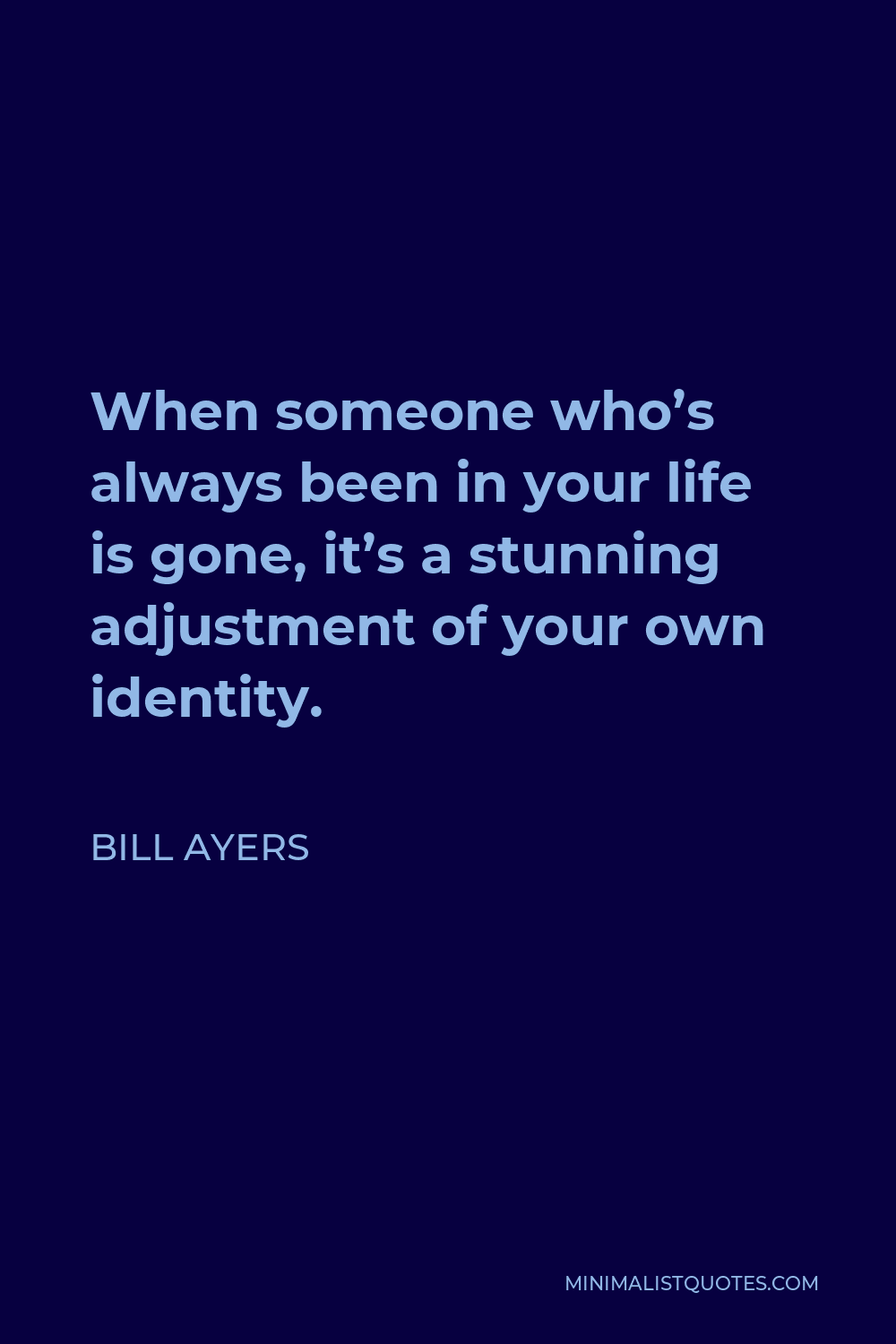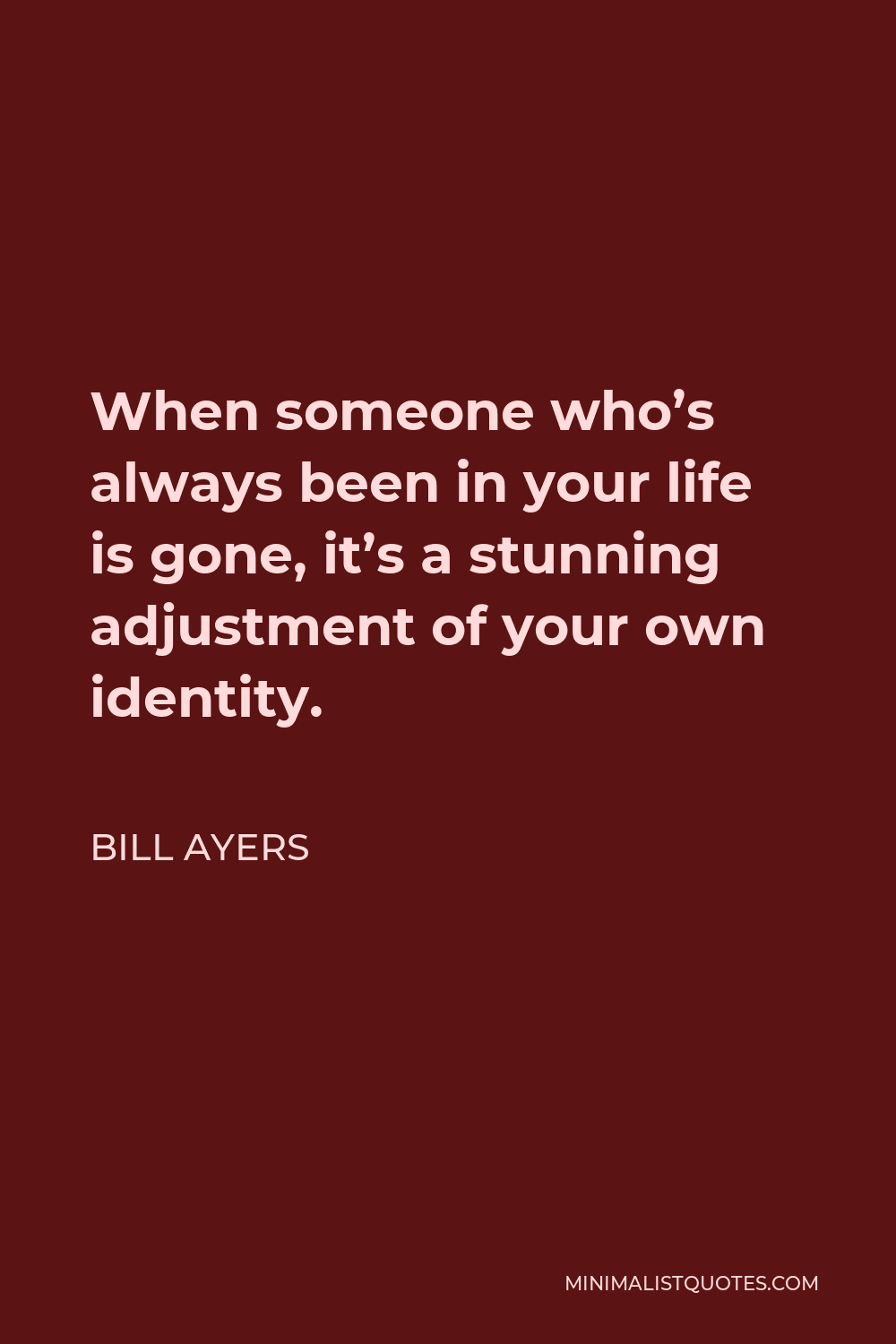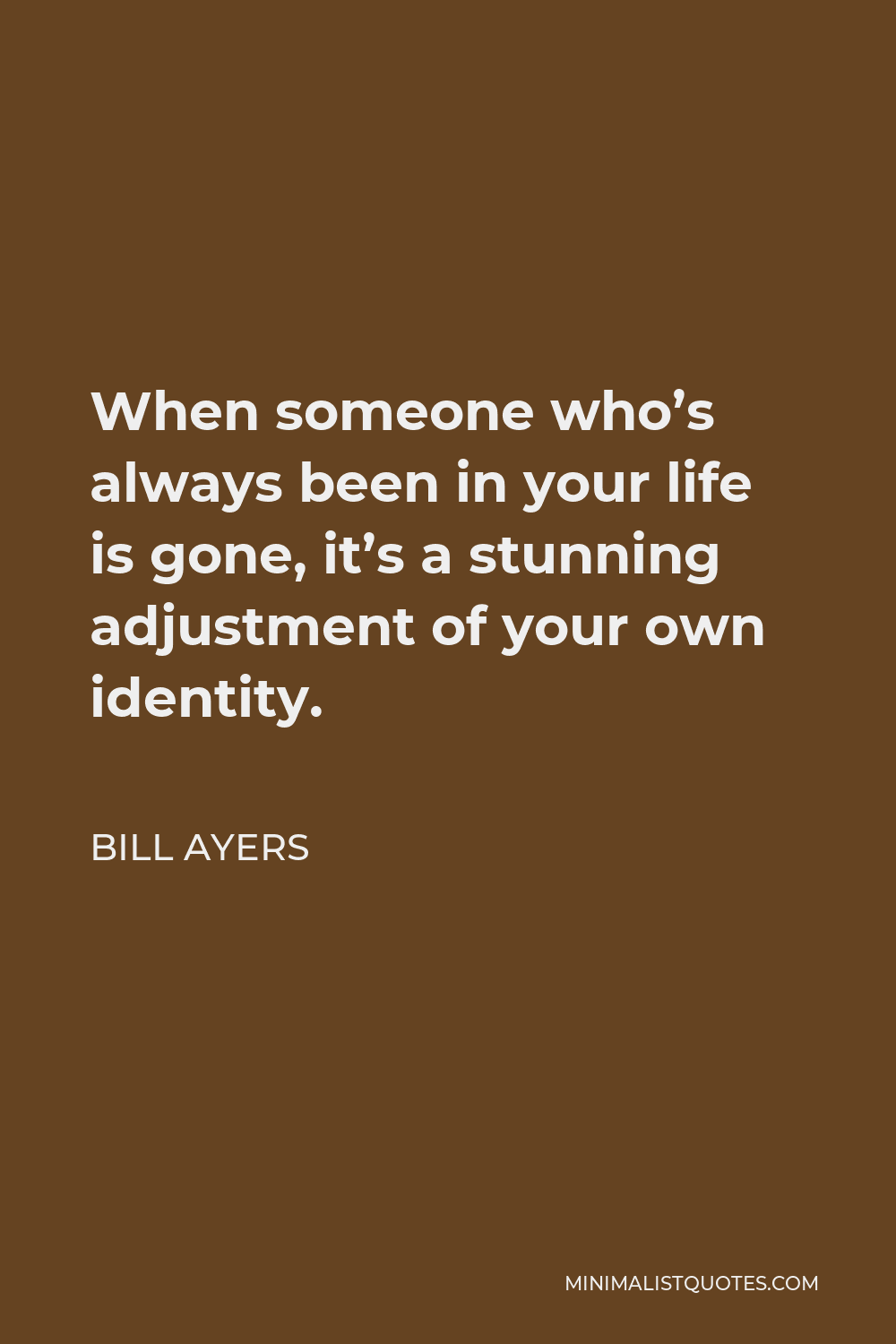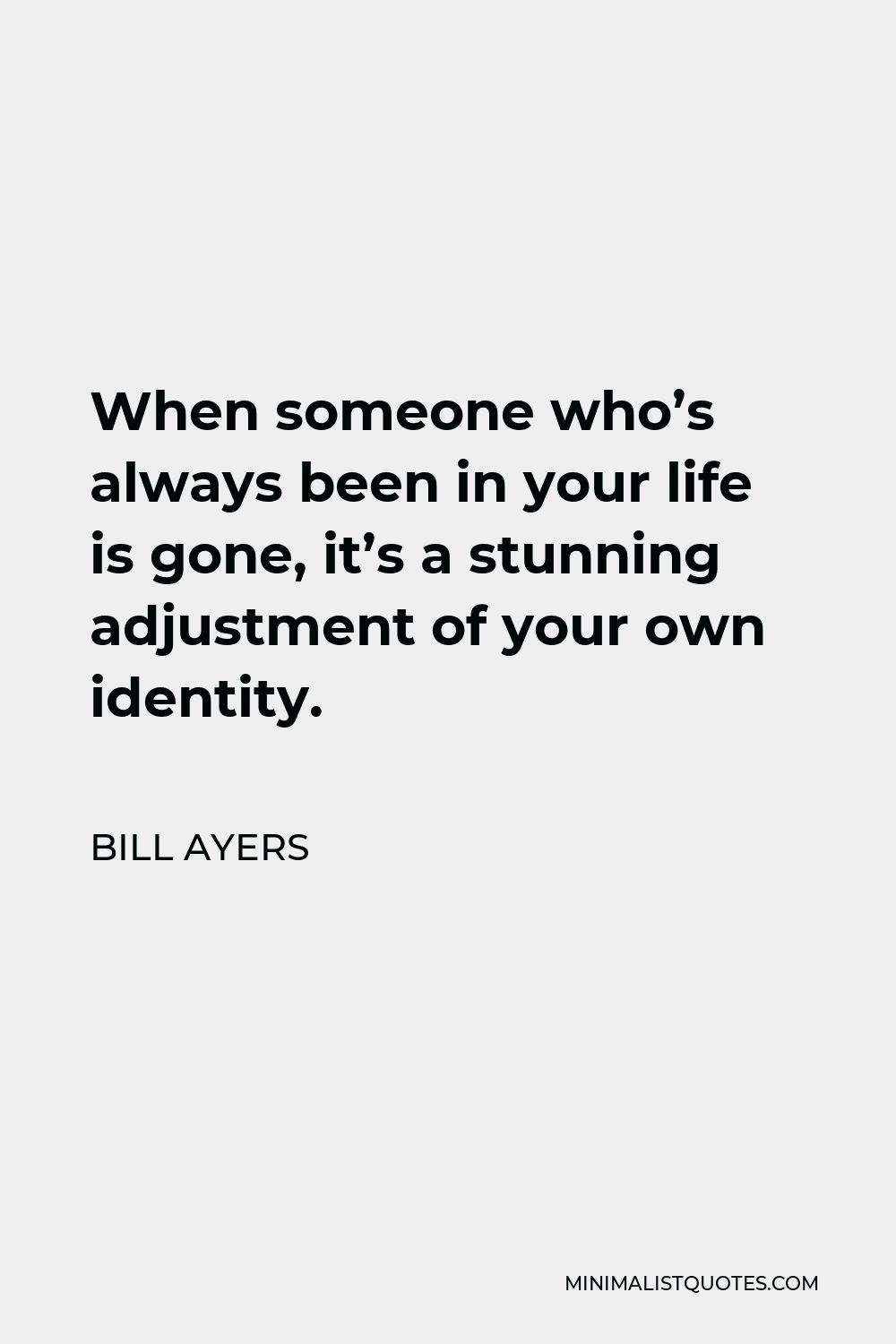[Barack] Obama doesn’t disappoint me, because all during the campaign he said, I’m a pragmatic, middle-of-the-road, compromising politician.
BILL AYERSWhen someone who’s always been in your life is gone, it’s a stunning adjustment of your own identity.
More Bill Ayers Quotes
-





![Bill Ayers Quote - [Barack] Obama doesn’t disappoint me, because all during the campaign he said, I’m a pragmatic, middle-of-the-road, compromising politician.](https://minimalistquotes.com/images/barack-obama-doesnt-disappoint-me-because-all-duri.jpg)
-





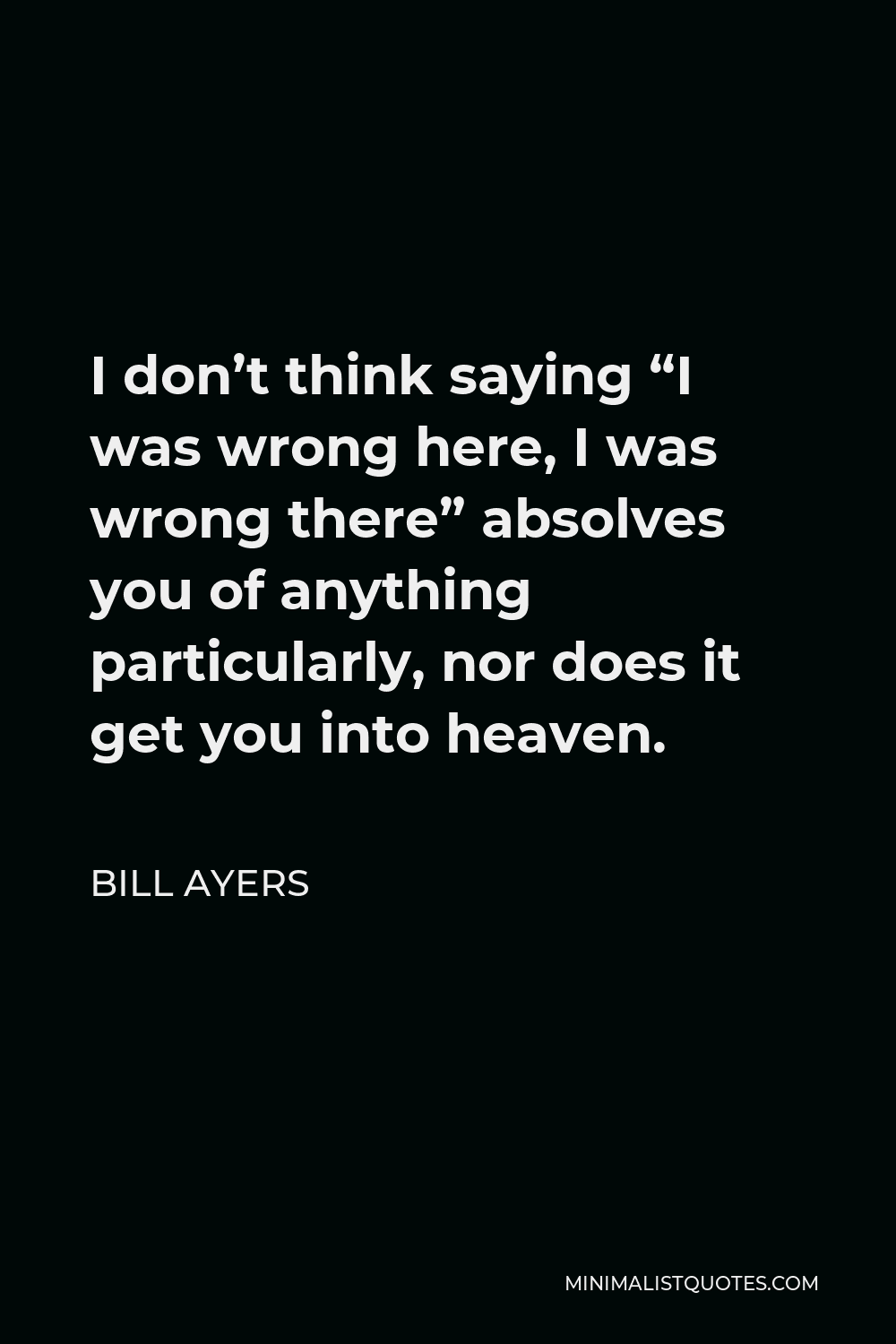
I don’t think saying “I was wrong here, I was wrong there” absolves you of anything particularly, nor does it get you into heaven.
BILL AYERS -





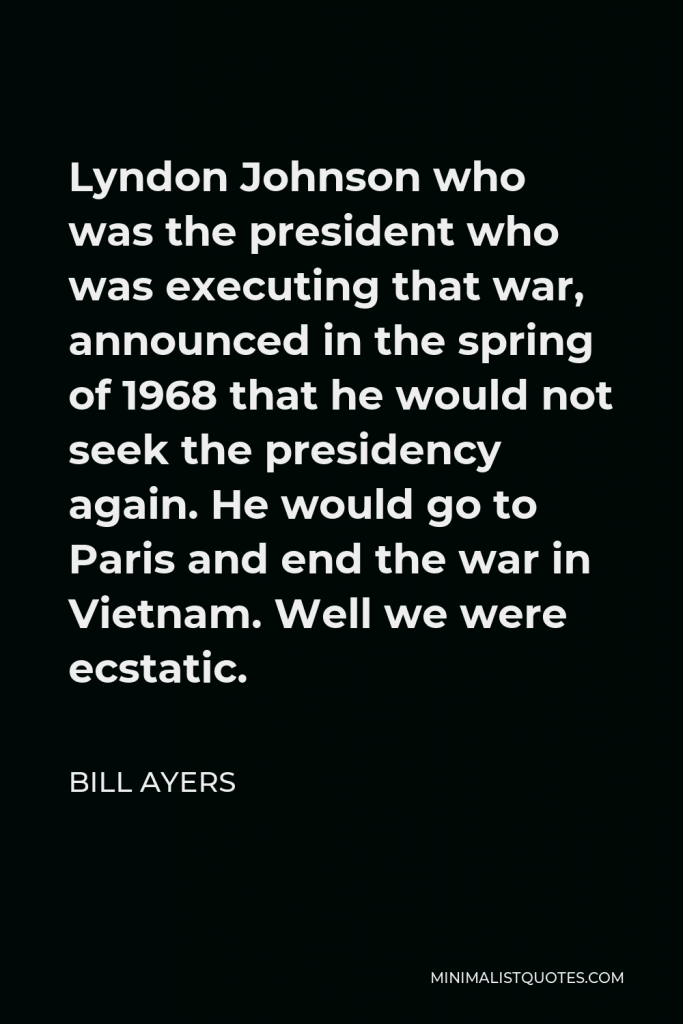

Lyndon Johnson who was the president who was executing that war, announced in the spring of 1968 that he would not seek the presidency again. He would go to Paris and end the war in Vietnam. Well we were ecstatic.
BILL AYERS -





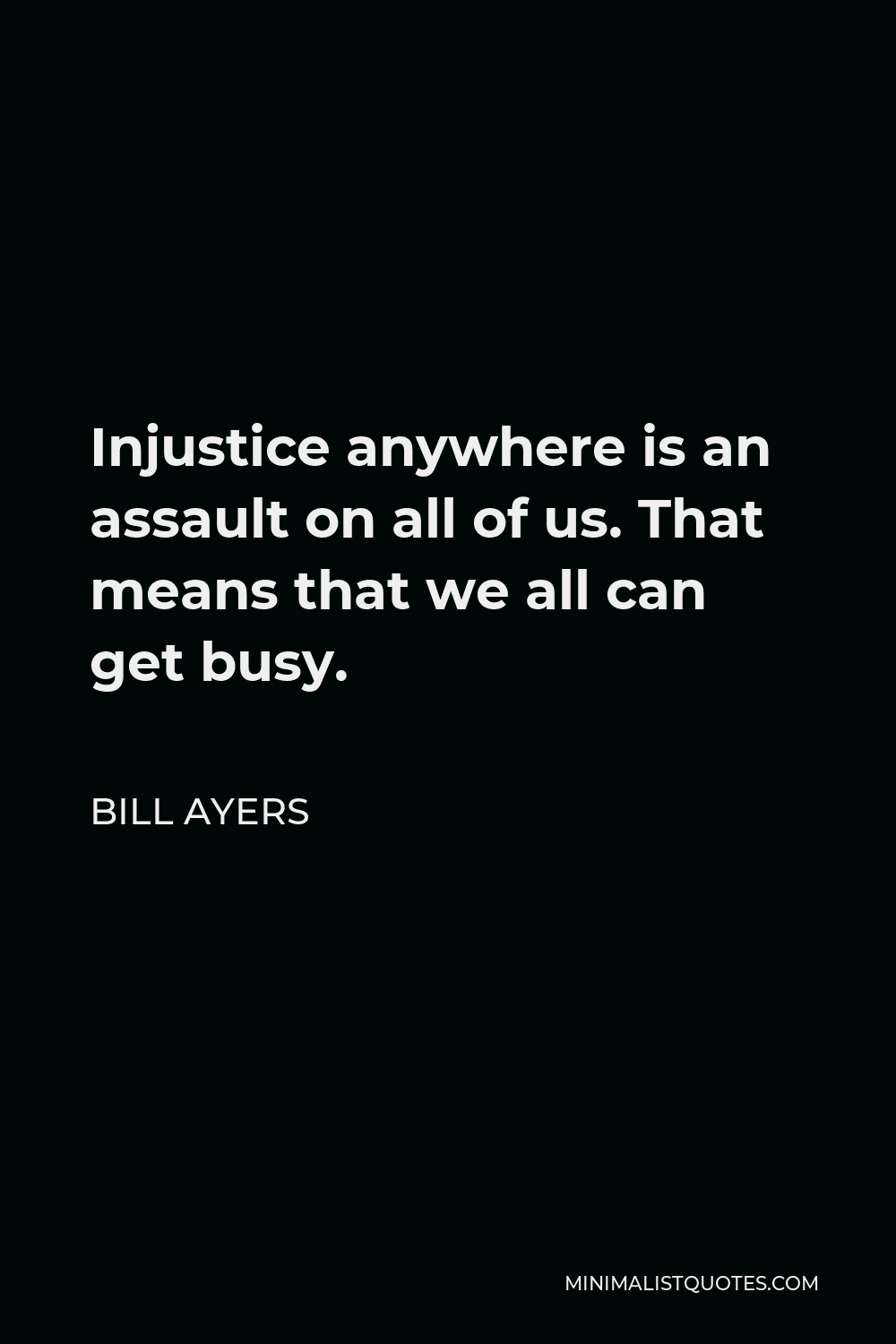
Injustice anywhere is an assault on all of us. That means that we all can get busy.
BILL AYERS -





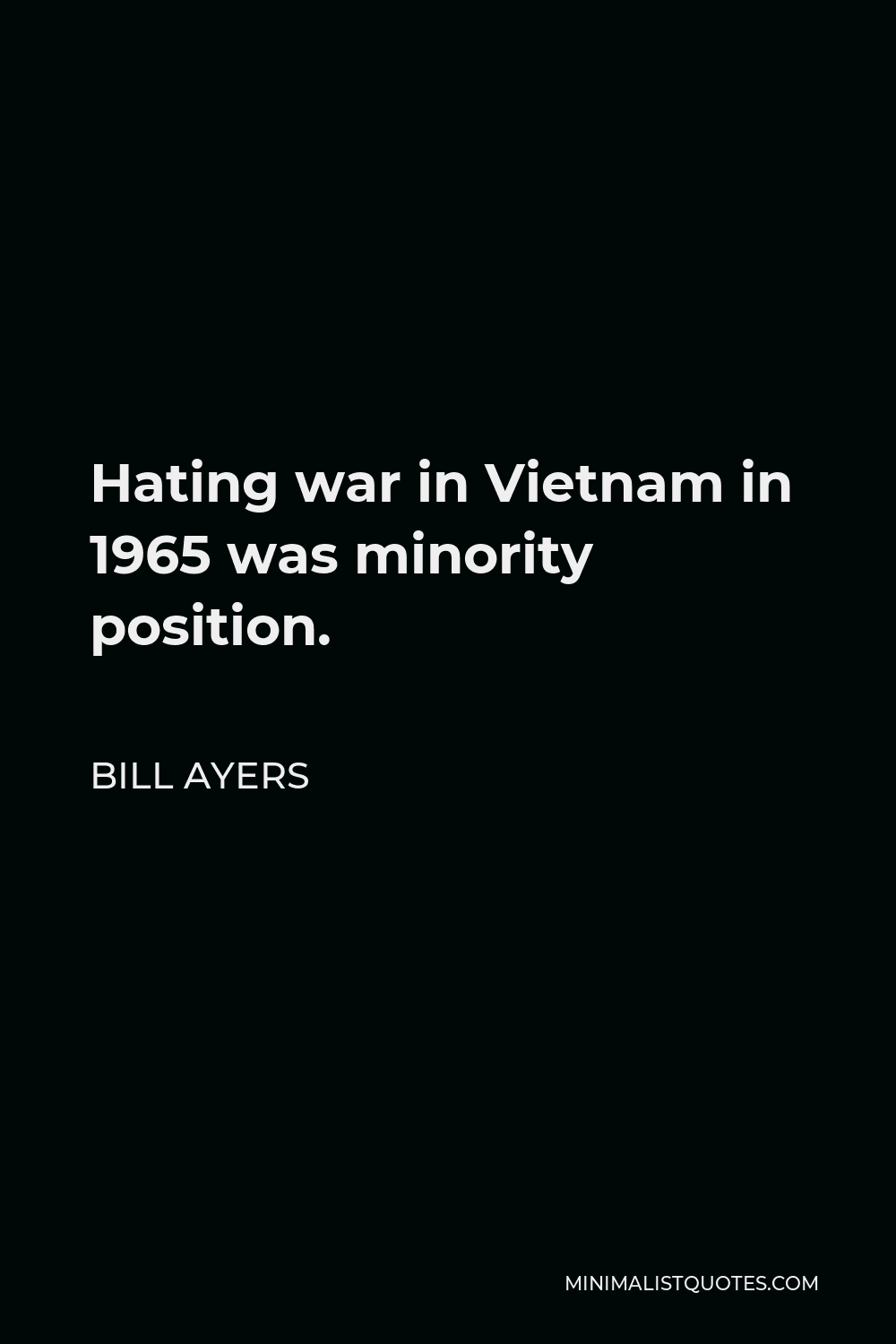
Hating war in Vietnam in 1965 was minority position.
BILL AYERS -





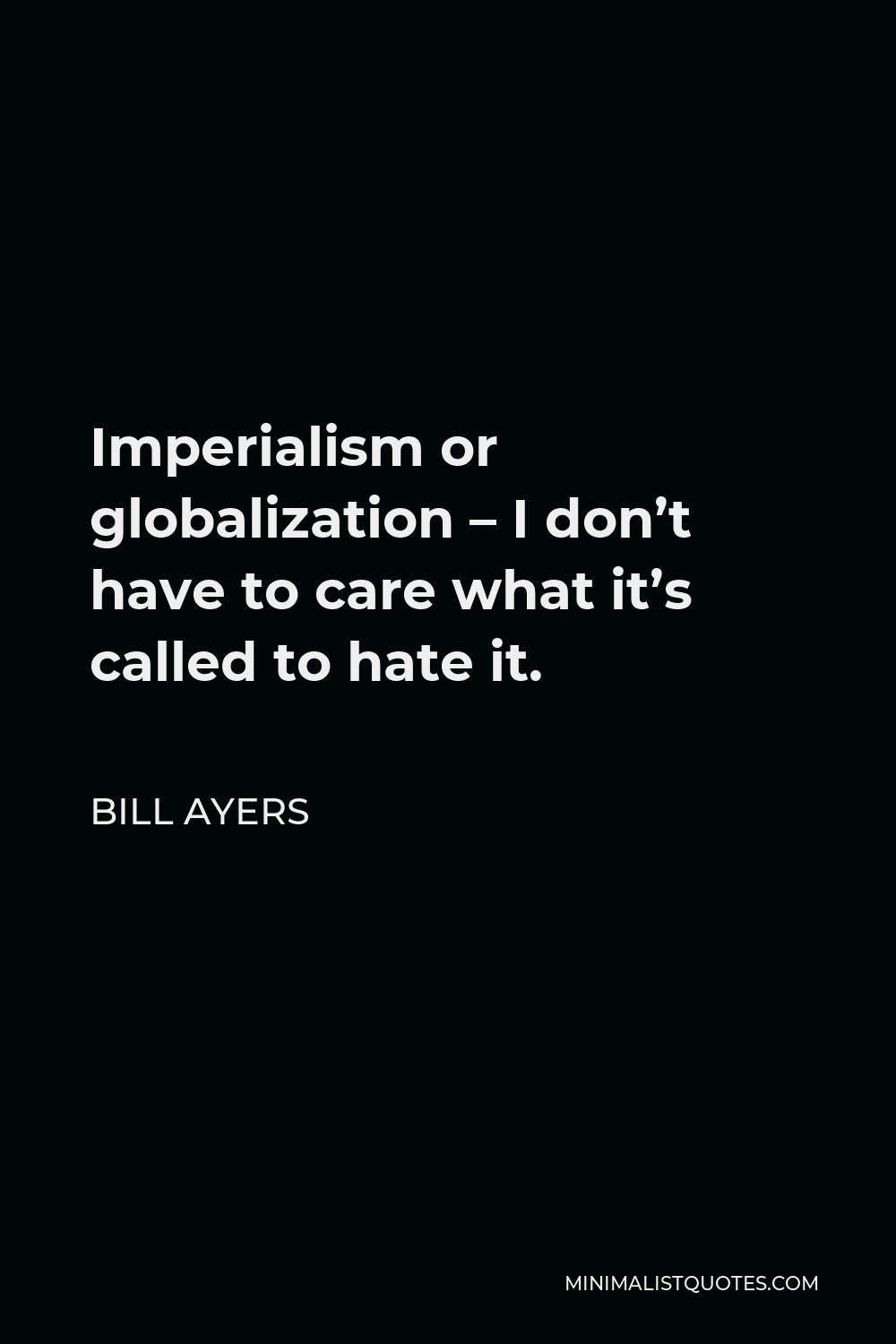
Imperialism or globalization – I don’t have to care what it’s called to hate it.
BILL AYERS -





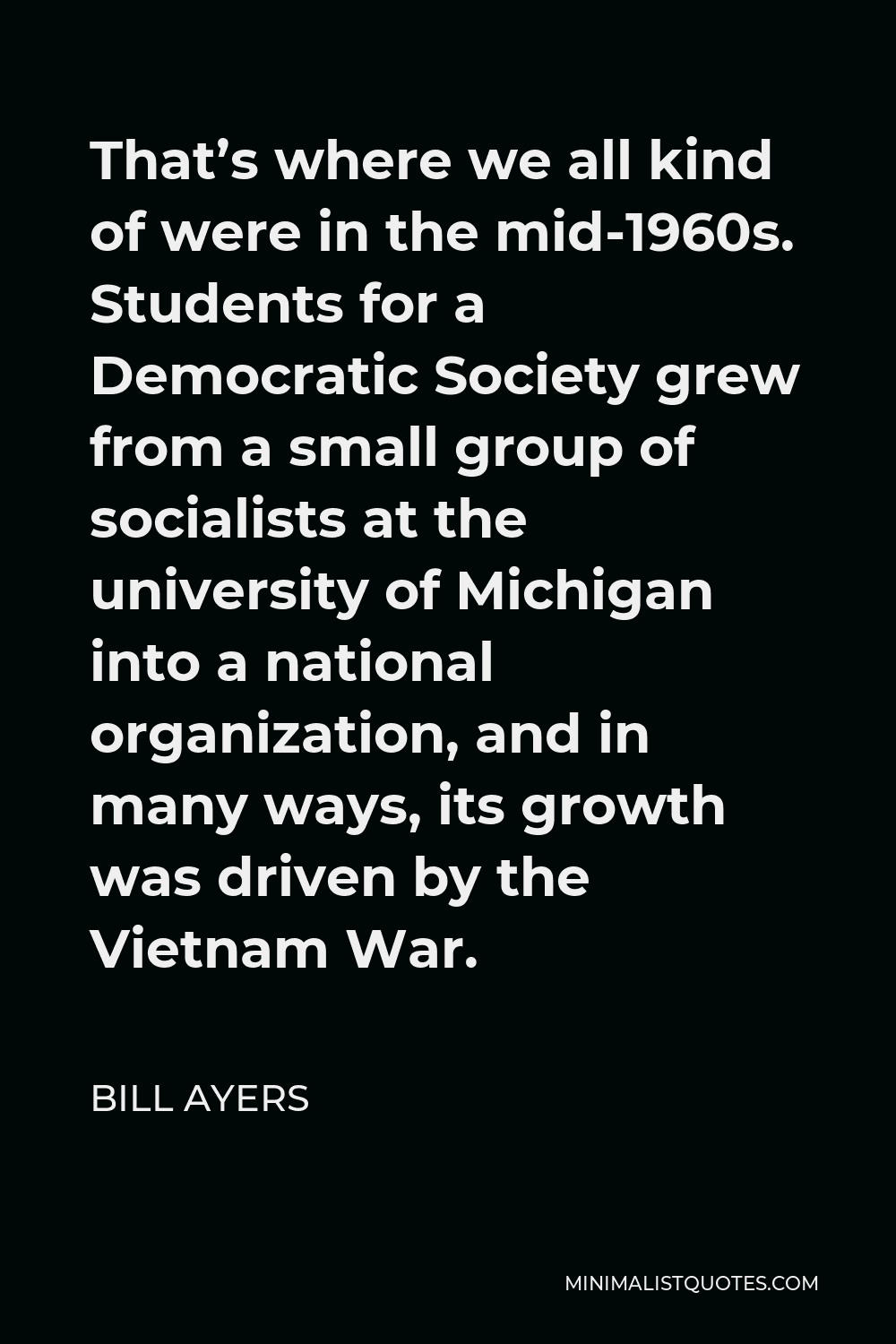
That’s where we all kind of were in the mid-1960s. Students for a Democratic Society grew from a small group of socialists at the university of Michigan into a national organization, and in many ways, its growth was driven by the Vietnam War.
BILL AYERS -





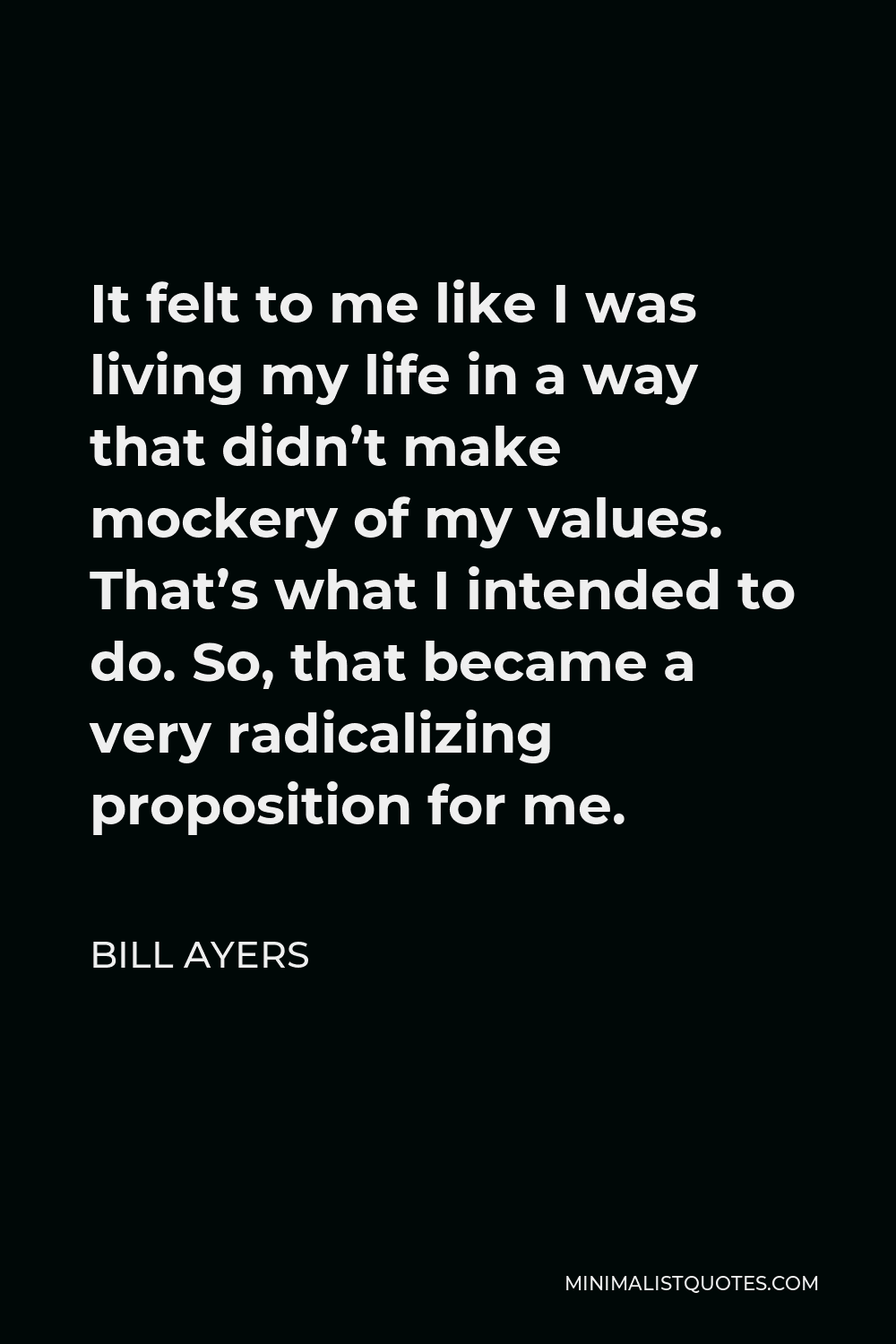
It felt to me like I was living my life in a way that didn’t make mockery of my values. That’s what I intended to do. So, that became a very radicalizing proposition for me.
BILL AYERS -





![Bill Ayers Quote - Certainly my parents were Dr. [Benjamin] Spock-driven parents. So they were tolerant.](https://minimalistquotes.com/images/certainly-my-parents-were-dr-benjamin-spock-driven.jpg)
Certainly my parents were Dr. [Benjamin] Spock-driven parents. So they were tolerant.
BILL AYERS -





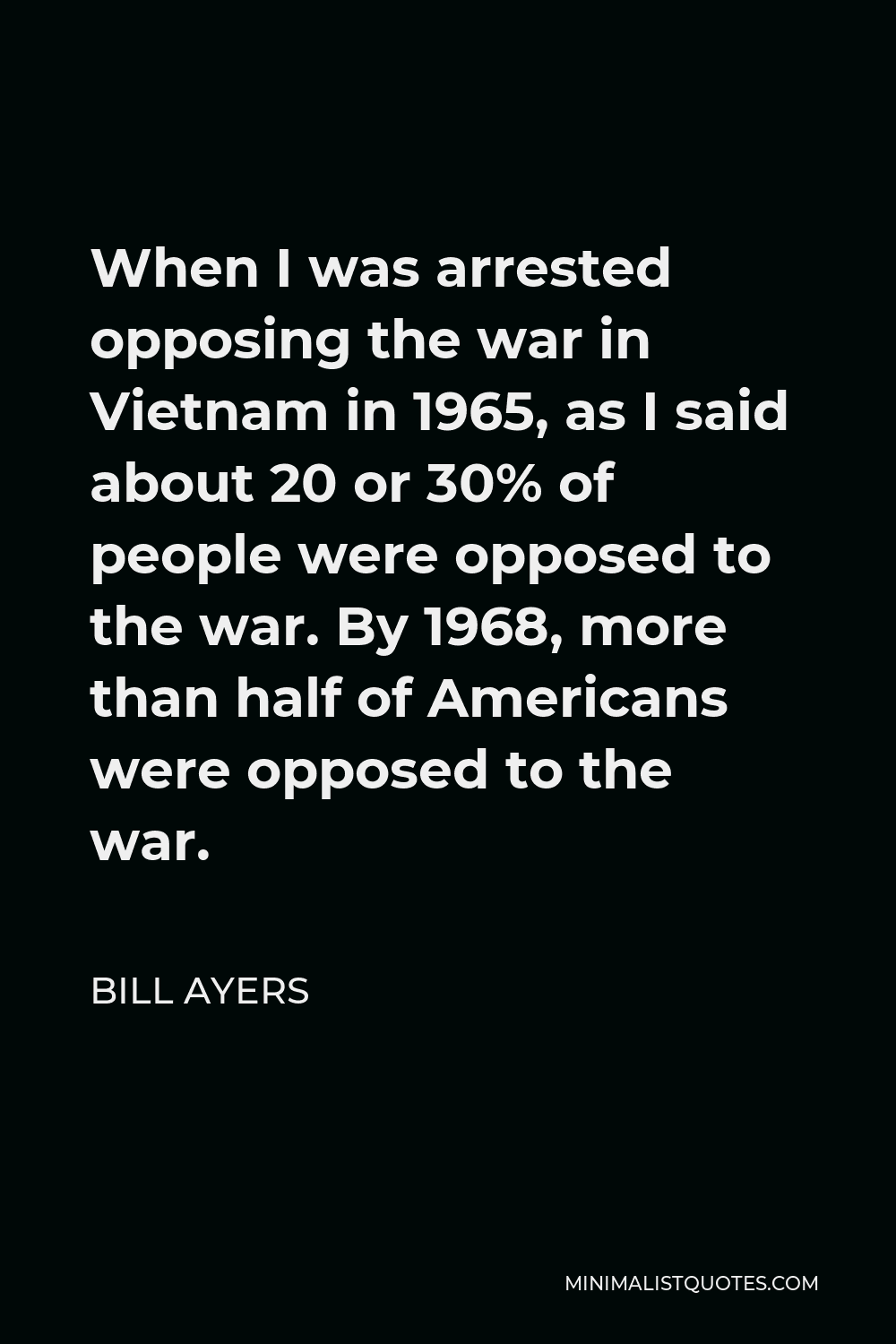
When I was arrested opposing the war in Vietnam in 1965, as I said about 20 or 30% of people were opposed to the war. By 1968, more than half of Americans were opposed to the war.
BILL AYERS -





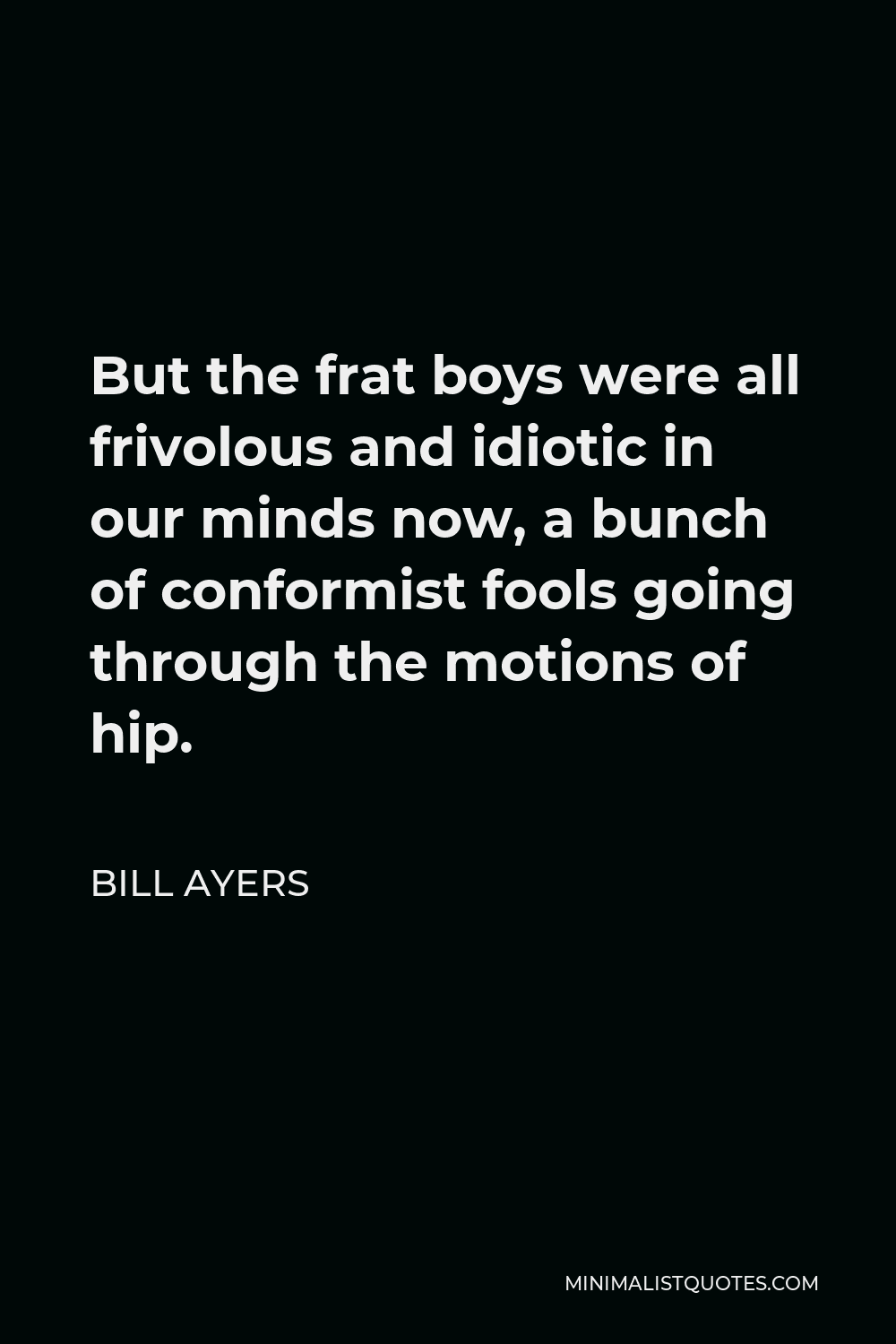
But the frat boys were all frivolous and idiotic in our minds now, a bunch of conformist fools going through the motions of hip.
BILL AYERS -





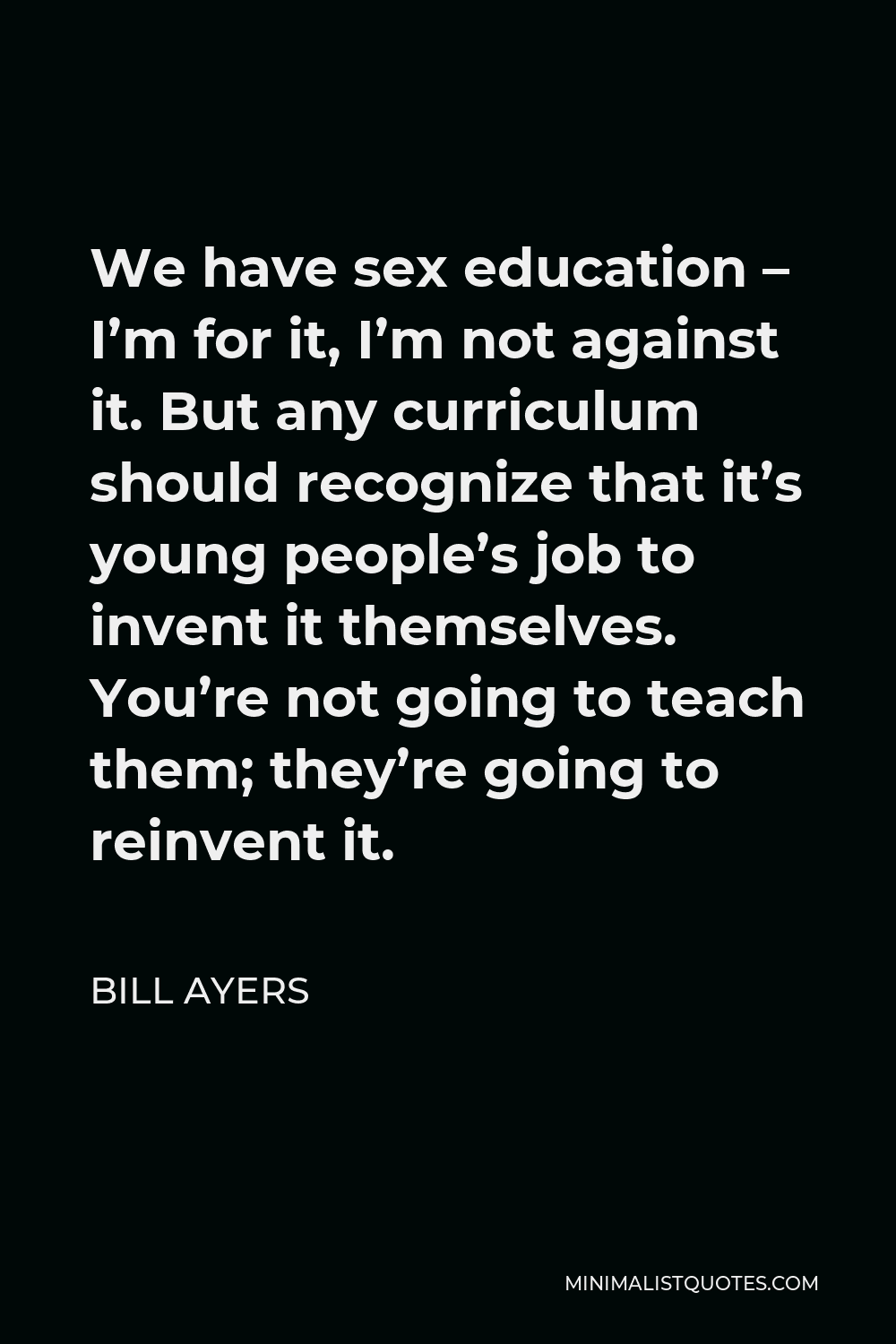
We have sex education – I’m for it, I’m not against it. But any curriculum should recognize that it’s young people’s job to invent it themselves. You’re not going to teach them; they’re going to reinvent it.
BILL AYERS -





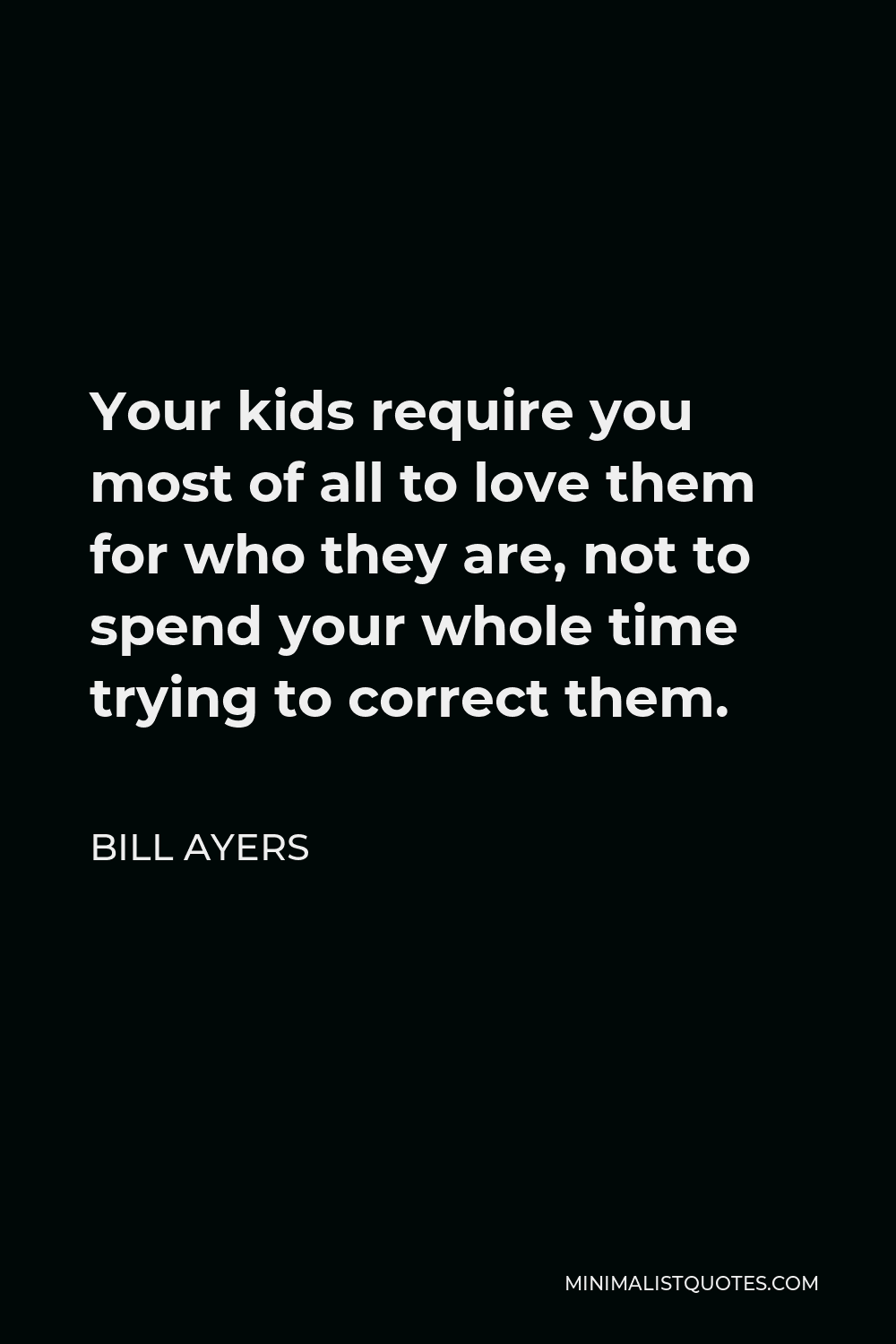
Your kids require you most of all to love them for who they are, not to spend your whole time trying to correct them.
BILL AYERS -






I taught. I lectured at universities. I spoke to my students. I spoke in certain public forums. But what I didn’t do was respond to microphones being thrust in my face and saying, what is your relationship with Obama and are you an unrepentant terrorist?
BILL AYERS -





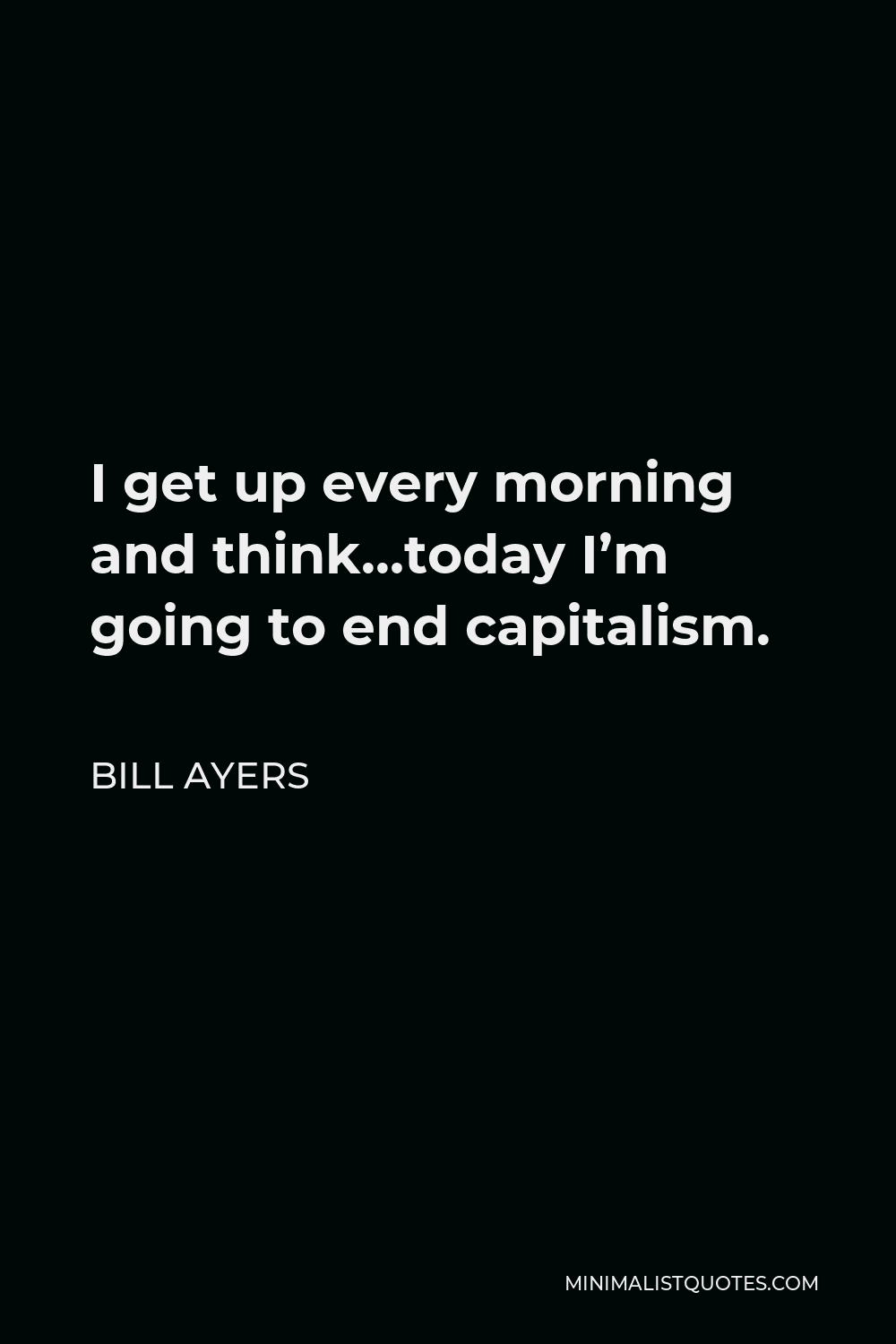
I get up every morning and think, today I’m going to make a difference. Today I’m going to end capitalism. Today I’m going to make a revolution. I go to bed every night disappointed but I’m back to work tomorrow, and that’s the only way you can do it.
BILL AYERS -





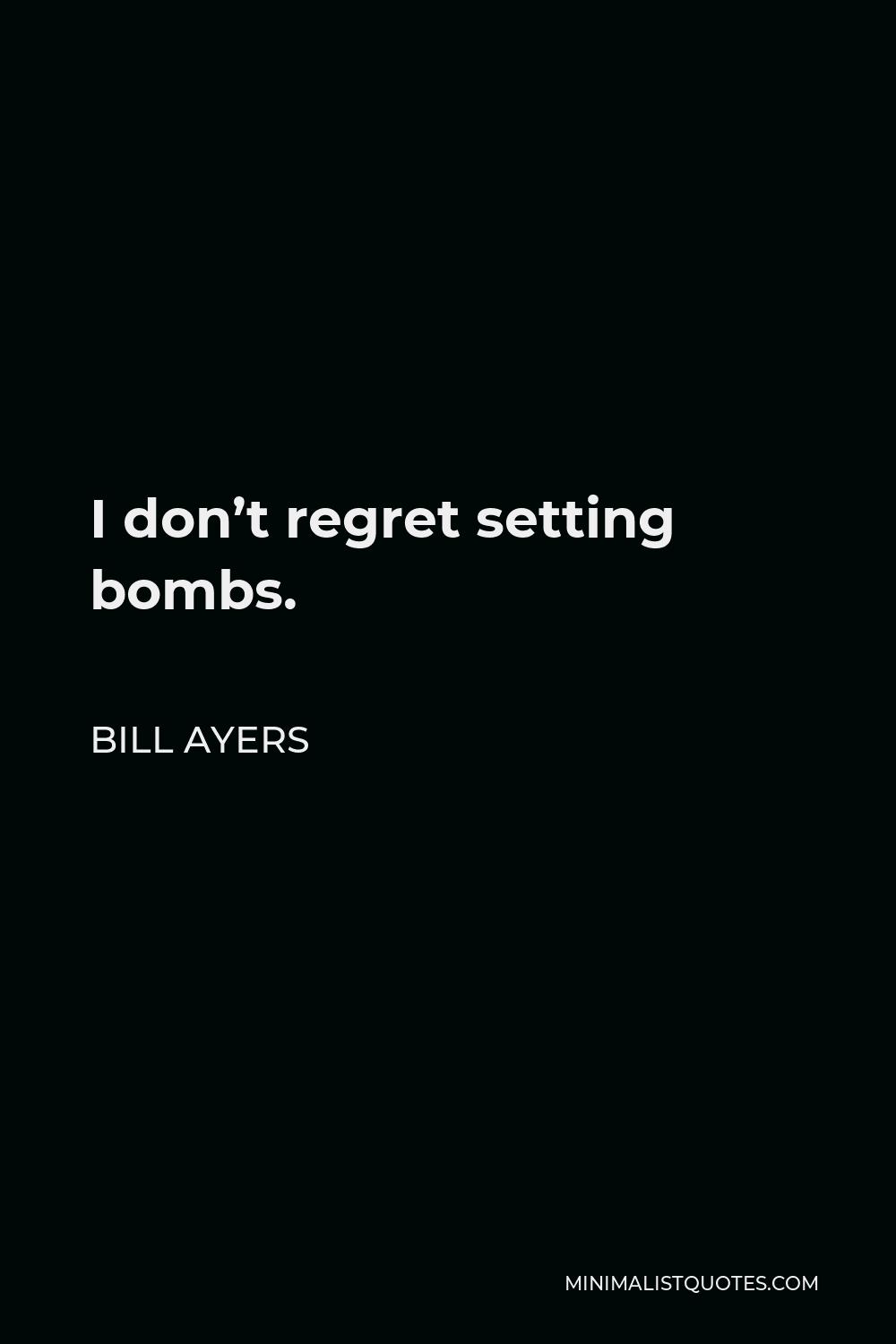
I don’t regret setting bombs.
BILL AYERS
